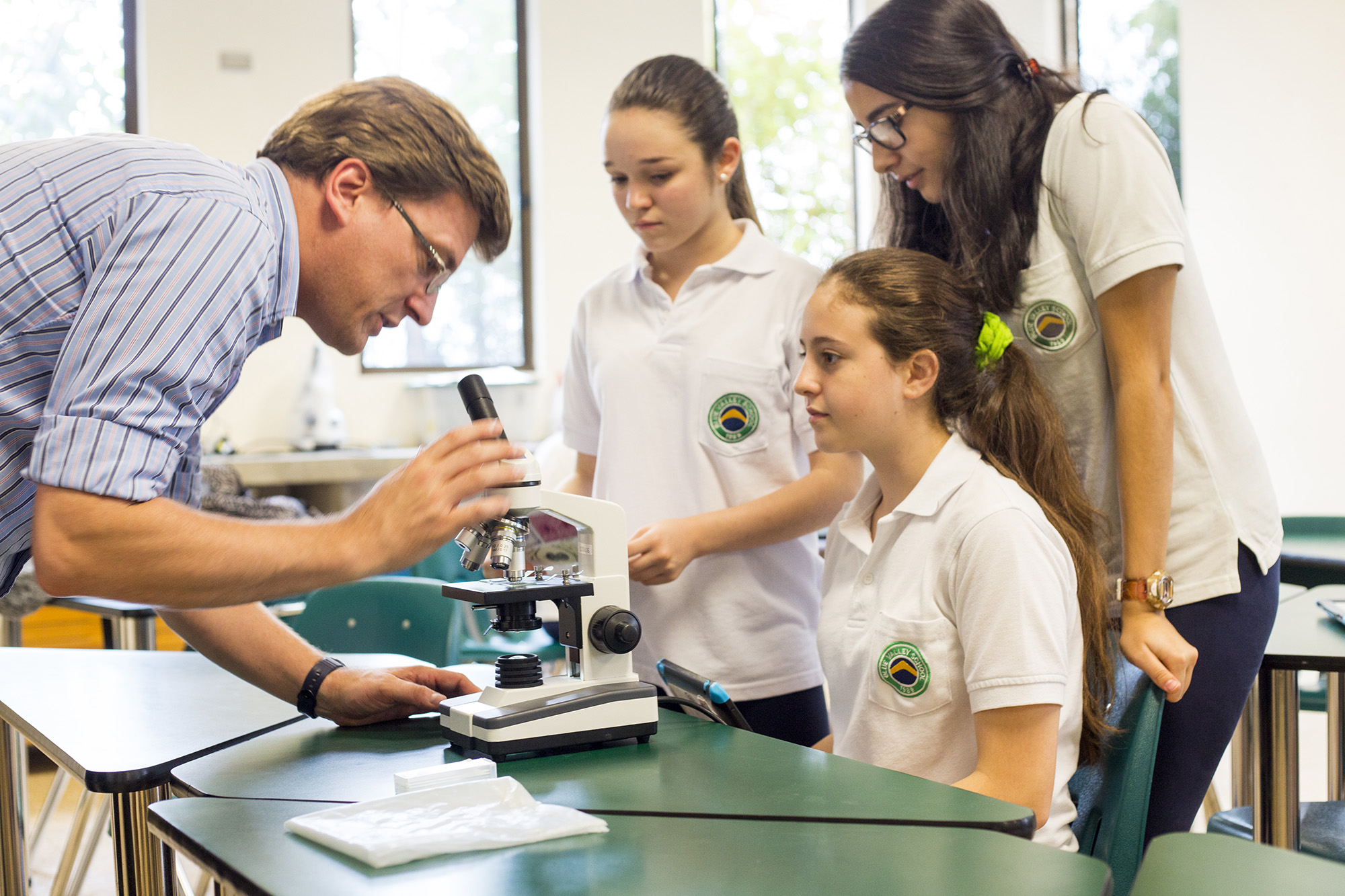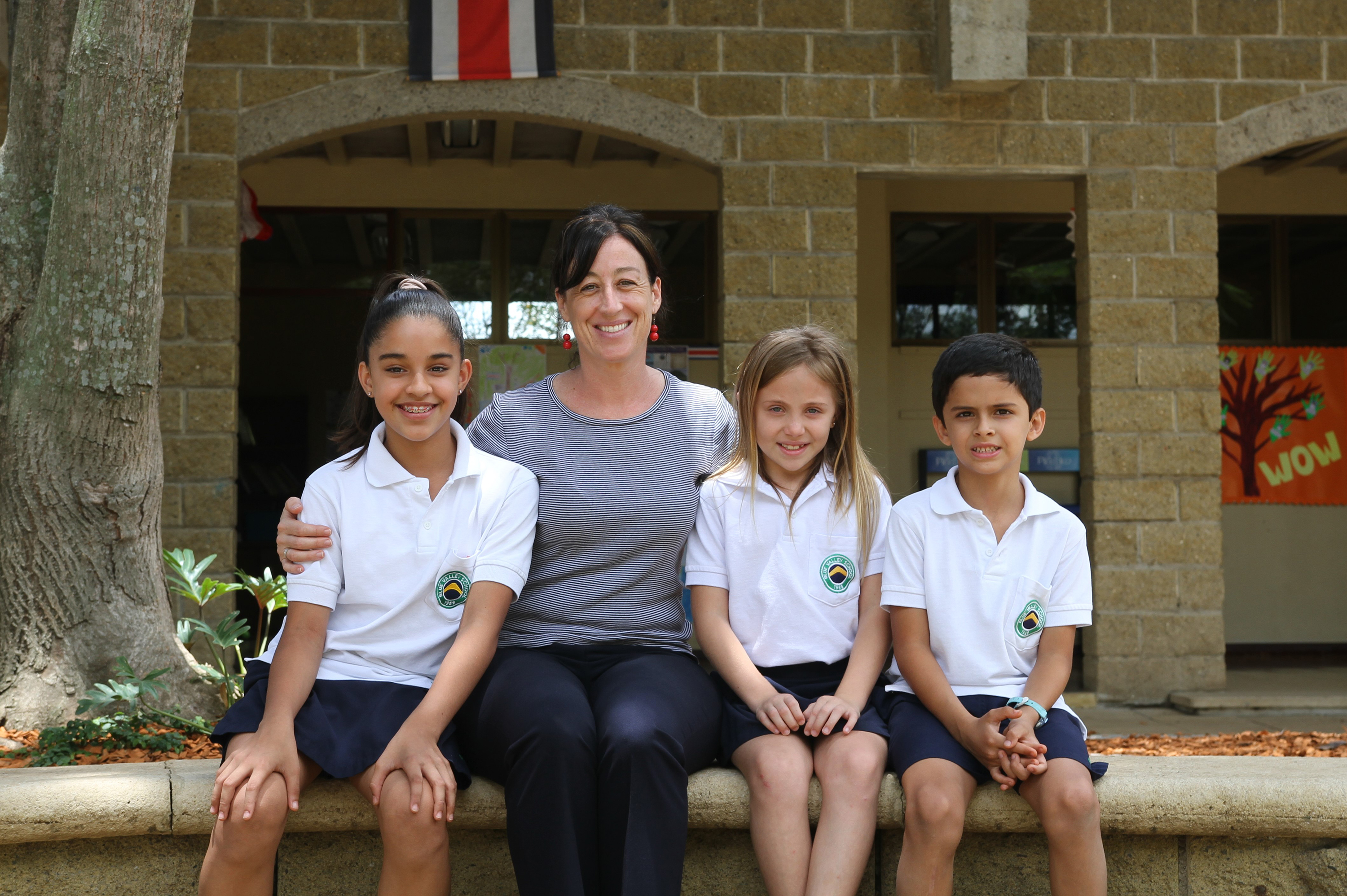

Blue Valley School
Costa Rica
About Blue Valley School
Our School is part of the Inspired Education Group
Inspired Education is the leading global group of premium schools, with over 80 premium private schools spanning six continents providing premium education to over 70,000 students ensuring they all receive a first-class learning experience from Kindergarten to Year 13.
We offer you the chance to work/live in an exciting new location, collaborate with passionate educators, develop your skills, and grow in a role that inspires you.
Please visit our careers site for further information and to see our latest opportunities - https://careers.inspirededu.com/
Blue Valley is a private, bilingual, international school that offers a rigorous American curriculum, yet is rooted in local culture and includes a strong Spanish program.
PHILOSOPHY
Blue Valley students will learn in such a way that they become lifelong learners. To accomplish this, they will not only be exposed to a body of knowledge that will allow them to make the best use of their intellectual capacities, but to the skills necessary to become independent learners. They will understand that learning can help to justify one's existence because it leads to improvement as a human being. As a result, Blue Valley students will find joy and satisfaction in learning that will not end upon graduation.
If our goals are to be fulfilled, Blue Valley students must be self-confident and have a critical mind. This will lead them to make the right choices and assertively defend their principles, guided by a strong moral conscience. Our students will not only develop their individual voices but will also learn to exercise them wisely.
Besides becoming well-rounded individuals, Blue Valley students will be a reflection of their culture and members of a global society. They will show solidarity with others and recognize that the welfare of every individual is the responsibility of each one of us. They will pursue the prosperity of society and see it as an opportunity to achieve their personal happiness by internalizing the notion that being a good citizen is the best contribution they can make to their country and to the world. They will show a responsible attitude for this world by caring for the environment and appreciating its relevance to the wellbeing of mankind.
Blue Valley School's philosophy is based on three fundamental principles*:
1. Respect for the individual
2. A quest for excellence
3. Service
Respect for the Individual
Respect for the individual is found at all levels: students, teachers, support staff, and administrators. It is a persistent aspect of the "hidden curriculum," present in all of the interactions between members of the school community. For instance, students are addressed as individuals, not patronized as children. We expect them to conduct themselves in a manner best suited for the optimal functioning of the whole school, not by making them follow strict rules but by giving them choices. When they are very young, we offer three basic guidelines or questions which students must ask themselves before taking any action: "Is it safe?" "Is it kind?" and “Is it fair?” A negative answer to any question should preclude the action. As they grow older, they must bear in mind that while they have choices, whatever they choose should not harm themselves or others, and that it would authorize everyone else to make the same choice. They must also be ready to accept the consequences of their choices. Lastly, individuals must first respect themselves to be able to act responsibly towards others.
Each of our students should develop a social conscience. As responsible citizens, they should be open to other cultures and not only tolerate the differences but appreciate them as well. In their own culture and immediate surroundings, they must avoid judgment of others by focusing on the offense, not the offender, understanding that it’s the action that hurts and not the person who commits it. They can strive to correct that action, but it is not in one’s prerogative to expect the other person to change according to our will. This is true especially when dealing with new people from other cultures (peers or adults): students must strive to learn from them and gently demonstrate their own mores, in order to help the others ease into their new environment.
At Blue Valley we emphasize empathy as one of the most important values for a human being to possess. Our students learn that happiness is more easily achieved if one derives it from giving rather than from receiving. Giving is within one's power; receiving is not. As frequently as can be done effectively, our classes are taught through the cooperative learning methodology. Just as those who have more are encouraged to help those who have less, those who are more capable must learn to help those who are less so.
The Quest for Excellence
The quest for excellence extends to all areas that influence the most advantageous development of the child. Besides expecting a well-rounded individual, self-confident and able to exercise self-control, the entire staff makes sure that students distinguish right from wrong based upon universally recognized values. However, we must share with the families, and society in general, the responsibility for the development of physical, psychological, and moral values. Therefore, the school focuses primarily upon the academic aspects of the students' needs, since this area is considered our main responsibility.
Extensive and intensive learning not only provides the students with an accumulation of information but also gives them a body of background knowledge to make the proper associations for future learning and the application of their knowledge. Teachers question students at higher cognitive levels requiring them to analyze, synthesize, and evaluate using inferences. They stimulate and encourage creativity and “out of the box” thinking.
Our academic programs are designed to sequentially increase the conceptual demands in order for students to learn more and internalize it better. Our mainstream courses prepare students well for college admissions, but we also provide demanding options for those who wish to take higher-level courses. Four principles support the implementation of our rigorous academic demands: time on task counts, students are addressed at their level of understanding, concepts should be meaningful, and proper learning resources will be available and utilized.
Special subjects (art, music, technology, and physical education) complement the students' cultural instruction. In art in elementary, we focus on the importance of creativity and participation using a “hands on approach,” but also expose the children to art appreciation through the study of other artists’ works. Our students participate in national and international art contests and actively participate in the school's annual art exhibition. Starting in middle school and especially in high school, art appreciation becomes more important and theory complements the art courses. Music includes singing, playing an instrument, and music appreciation. In elementary, a singing program prevails based on the children’s possibilities according to their level. It culminates with a choral concert at the end of the year. They also have percussion practice that intensifies in secondary. Physical education includes physical fitness and sports, also focusing on the importance of a balanced diet for a healthy life. After school, the students have the option to participate in co-curricular clubs and lessons.
Presently, technology plays a significant role. We want to empower the student to use the computer: it should be his instrument, to be used at its maximum potential and efficiency. This is why we discourage computer-assisted instruction (CAI); we prefer to emphasize that students learn how computers work for them by exposing them to coding. We encourage teachers to utilize technology as often as possible. Digital communication between teachers, students, and parents is increasingly important.
Blue Valley also offers a variety of elective courses at the high school level to allow students to design a program that better fits their specific needs and interests. Electives are designed to assist those interested in an academically intensive program, and to meet the needs of those interested in a general course of study that will broaden their horizons and expose them to different career paths.
Service
We approach service in two directions: service to the students and service by the students towards their fellow human beings and to their environment.
The best service to the students is teaching them at their level of understanding. As early as three and a half years old, students attend a Montessori classroom where they are given the opportunity to work on the constructive activities of their choice. Besides the obvious advantage of training themselves to choose, to evaluate activities, and to feel that their opinions are important, experience has shown that children choose activities where they can be successful. Thus, they grow with a feeling of accomplishment, avoiding a message of ineptitude when they have to do what they are told and perhaps cannot always handle at that time. Nevertheless, limits and routines are quite important. Learning to choose within set limits is another habit we pursue. Once fundamental life skills are acquired, the system evolves, gradually incorporating more traditional methodologies.
Aside from academic issues, and because we are intent on educating well-rounded individuals, developing their commitment to service has become increasingly important in our philosophy. As important as service to the students, directly or through their parents, evident in the above paragraphs, is educating the students to assume a growing responsibility towards their fellow human beings and their society as a whole – to learn to give and not only expect to receive. Our students, because of the instruction they are receiving and their socio-economic status (parents that can pay an excellent service) are bound to become executives in their professional life. As leaders in their field, the country and the world expect them to be compassionate people; conscious that they can and should leave a footprint that will ensure that the world has become a better place than the one they found. Blue Valley has identified work in two areas: community service and ecological environmental education. Community service projects begin in elementary and culminate in secondary with global and individual humanitarian projects, like the one-on-one relationship helping less privileged students.
*Adapted from IBM's principles, established by Tom Watson when he founded the organization
Build a career with Inspired Education
Inspired schools remain anchored in the vibrant cultures of their respective locations, and collectively, they form an international community that nurtures each student's academic and personal development in a progressive, dynamic, and innovative learning environment.
Specialist-led, extracurricular activities and exchange programmes are woven into the fabric of Inspired's approach to schooling, resulting in a well-rounded, diverse student population of engaged, active learners who confidently apply their wide-ranging skills within a global context.
Students benefit from a robust, holistic, international curriculum formed around the Inspired three pillars of modern education: academic excellence, sports, and performing & creative arts, with dedicated, highly qualified teachers who demonstrate Inspired's exemplary methodology. In the application of a student-centred teaching model, Inspired schools achieve outstanding examination results and, importantly, nurture happy, multi-skilled individuals who have faith in their abilities. Inspired students are empowered to fulfil their potential and are fully equipped to thrive in a modern world.
Location


















